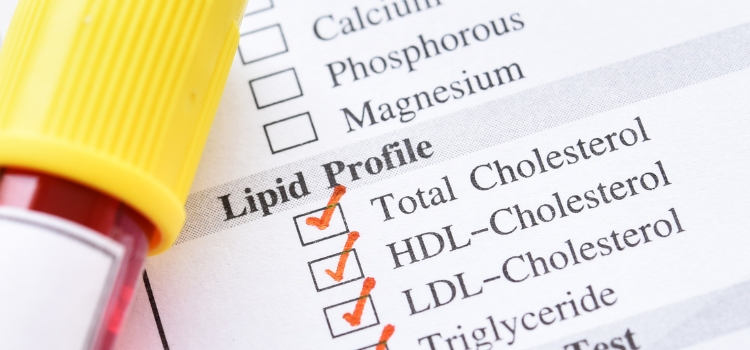11 Essential Lab Tests Everyone Should Consider
Lab Tests: What They Are & Why They're Important
In the simplest terms, a lab test is a procedure that analyzes a sample obtained from your body. First, a sample of your bodily fluids or tissues – like your blood, urine, saliva, tissue, or hair – is extracted. This sample is then processed and analyzed to measure levels of chemical components.
By taking precise measurements of different chemical components found within your tissues or bodily fluids, we are able to get a glimpse of what is going on within your body and between the different organs and systems within your body. Think of each lab test like a piece of a puzzle. By taking different measurements and collecting clues and insight as to what is going on beneath the surface, we can begin putting the pieces of the puzzle together.
As these puzzle pieces come together, we can get a more accurate picture of anything that is off-kilter – allowing us to detect dis-ease states, imbalances, deficiencies, and more. The ability to run laboratory tests and gain this insight is hands down one of the most valuable and crucial components of modern-day healthcare.
Realize that if your provider has told you your lab tests are normal, that does not mean that you are healthy and that they are optimal. This just means you are like 95% of the population in your area. Is 95% of the population in your area healthy? I would think if you evaluated it, most of the population is over weight, struggling with several issues, maybe on a few prescriptions and not living a vibrant, energy-filled life. Why would you want to be like that? I would want to be healthy, on no prescriptions, doing everything I enjoy doing and still have energy left over. I want to live a vibrant life and, in order to do that, I look at optimal lab values, not normal ones. Stay tuned, that might be one of my first courses. Looking for optimal lab values
11 Lab Tests You Should Consider for Your Health
The truth is, many conventional practitioners do not routinely run many laboratory tests unless there is a clear indication that something is wrong. But prevention is the best medicine. And proactively getting a glimpse of what’s going on internally can give you a major edge in addressing any imbalances or abnormalities before they snowball into something more serious like a diagnosable disease. These lab tests are highly useful at any age to “put the pieces of the puzzle together” when it comes to the not-so-obvious nuances of what is going on within the intricate and complex network that makes up your body and your health.

Complete Metabolic Profile (CMP)
Also sometimes referred to as a chemistry panel or a chemistry screen, a complete metabolic profile is a blood test that gives us a snapshot of your liver and kidney function, your electrolytes, overall chemical balance, and metabolism. More specifically, a complete metabolic profile evaluates your:
- Albumin: Albumin is a protein produced by your liver that helps transport substances through your bloodstream.
- Bilirubin: Bilirubin is a waste product created when your red blood cells are broken down. Your liver is responsible for the breakdown and removal of this compound.
- BUN (blood urea nitrogen): Urea nitrogen is a waste product that’s filtered out and removed by your kidneys.
- Calcium: An abundant and essential mineral that is important for proper nerve, muscle, and heart function.
- Creatinine: Creatinine is a natural byproduct of muscle activity that’s processed and removed via your kidneys.
- Electrolytes: A CMP also assesses four of your most crucial electrolyte levels – sodium, potassium, bicarbonate, and chloride.
- Glucose: Also known as your blood sugar.
- Liver enzymes: Enzymes are specialized proteins that facilitate and speed up chemical reactions within your body. Your liver relies on various enzymes to carry out its duties and a CMP assesses some of the most critical ones – alkaline phosphatase (ALP), alanine transaminase (ALT), and aspartate aminotransferase (AST).
- Total protein: The total amount of proteins floating around in your bloodstream
Because a CMP includes multiple measurements, it offers a broad look at multiple functions within your body – making it an essential baseline test.

Complete Blood Count with Differential (CBC)
A complete blood count or CBC is a blood test that does exactly what its name implies – counts and analyzes your various blood cells. A CBC with a differential means that it also breaks down and examines not just your overall white blood cell count, but how many of each specific type you have. A CBC is able to give us an idea of:
- How many new blood cells you’re producing and how well they’re functioning
- The oxygen-carrying capacity of your red blood cells by assessing hemoglobin levels (specialized proteins that bind to oxygen molecules)
- Your hematocrit levels – or the concentration of red blood cells within your bloodstream
- How well your blood is able to clot based on platelet count
- How well your immune system is functioning by evaluating how many of each type of white blood cell you’re producing
Because your blood serves as one of the primary transportation channels throughout your body, an imbalance in your CBC can clue us into deeper imbalances and help steer the direction of further diagnostic testing.

Advanced Lipid Panel with APoB & Lp(a)
You’re likely familiar with the idea of standard lipid profile tests – more commonly referred to as testing your cholesterol levels. And while knowing your basic cholesterol levels can be helpful, it doesn’t really give us a clear picture of what’s going on when it comes to the details of your lipid levels.
You see, lipids are a broad group of naturally-occurring molecules that includes things like fats, waxes, sterols, and fat-soluble vitamins. And each specific type of lipid plays a specific and crucial role in our health – with each one having a unique interplay with each other and other molecules within your body. Because of this delicate interplay, it’s crucial to get a more detailed look at your lipid levels via an advanced lipid panel.
An advanced lipid panel evaluates the levels of numerous lipids – including total cholesterol, LDL cholesterol, HDL cholesterol, and triglycerides. But it also measures two specific lipids known as apolipoprotein B (apoB) and lipoprotein(a) or Lp(a) – both of which can directly correlate with your cardiac health. As they say – the devil is in the details – and getting accurate details regarding your lipid levels and cardiac health can go a long way when it comes to prevention, management, and healing.

Inflammatory Markers
Inflammation is your body’s natural response to infection, injury, trauma, toxicity, or some form of stress – meaning a spike in inflammation is one of the primary indicators that something is askew within your body. If the source of inflammation persists and your inflammatory response becomes chronically activated, it can spell trouble for your health. In fact, just about every chronic disease known to man can be traced back to chronic inflammation.
For this reason, it can be highly useful to obtain lab tests that evaluate your blood for the presence of these inflammation-stoking signaling molecules, also known as inflammatory markers. While there are a variety of inflammatory markers, the most important and most helpful tests to obtain include:
- High-sensitivity C-reactive protein (hs-CRP)
- Homocysteine
Elevated inflammatory markers can be a huge indicator of something brewing beneath the surface which can clue us into the need to dive deeper into identifying the source of inflammation.

Complete Thyroid Panel
Your thyroid is the small gland found at the front of your neck. While this organ may be tiny, its role in your health is anything but small. This little powerhouse is responsible for secreting vital hormones that regulate how your body processes and uses energy. And the cascade of hormones it secretes is intricately connected to the function of just about every cell in your body – meaning if your thyroid isn’t functioning optimally, it can have serious consequences for your health.
So it’s crucial to ensure this mighty gland is working properly by conducting a complete thyroid panel that assesses the amount of thyroid hormones you’re producing. It’s vital to ensure there’s a complete panel that checks all of the following:
- Thyroid-stimulating hormone (TSH): The hormone that prompts your thyroid to produce and secrete thyroid hormones
- Free thyroxine (T4) and free triiodothyronine (T3): The two major hormones secreted by your thyroid gland
- Thyroid peroxidase antibodies (TPO) and thyroglobulin antibodies (TgAb): These tests detect the presence of antibodies that might indicate the development of autoimmunity – meaning your immune system mistakenly begins attacking and damaging your thyroid
- Reverse T3: Reverse T3 is a metabolically inactive form of thyroid hormone generated as a byproduct of T4 degradation
Many thyroid tests do not evaluate all of these markers, so be sure to ask your provider to run a test for each of these markers to get an accurate picture of your thyroid function.

Methylamonic Acid
There is another article about this marker, but if you missed it, this is a functional marker for Vitamin B12. Click the image below to be taken to this article!
Autoimmune Markers
Autoimmunity occurs when your immune system essentially goes haywire and becomes confused – mistakenly identifying your own tissues as an imminent threat and launching an immune attack against your own healthy cells. The underlying causes of autoimmunity are not always entirely clear and can usually be linked back to a multitude of factors.
Autoimmunity can be insidious, gradually developing over time – so running some lab tests to catch it early can go a long way. In addition to the inflammatory markers listed earlier in this article, it might be a good idea to check for the following specific autoimmunity markers:
- Anti-nuclear antibody (ANA): Antinuclear antibodies derive their name from the fact that they are indeed “anti” nuclear – targeting and attacking the nucleus of your own cells. This test determines whether or not you have elevated levels of these autoimmune antibodies.
- Extractable nuclear antigen panel: This is another test designed to detect the presence of “autoantibodies” in the blood that negatively react with proteins in your cell nucleus.
Today’s stress-filled, nutrient-deficient, and toxin-laden world means autoimmunity is on the rise – making it more important than ever to test for these autoimmune markers.

Fasting Glucose, Insulin, Hemoglobin A1C, and Uric Acid
Your body utilizes energy from certain sugars and carbohydrates in a process that goes something like this:
- When you ingest certain sugars and carbohydrates, your body breaks them down into a simple sugar known as glucose – the main type of sugar found in your blood and your body’s main source of energy
- Once broken down, these glucose molecules enter your bloodstream and attach themselves to a type of protein on your red blood cells known as hemoglobin
- Glucose molecules will remain “stuck” to red blood cells for as long as the cells survive – which is typically about 3 months
- This process of glucose attaching to hemoglobin results in the hemoglobin becoming “glycated”
- The percentage of hemoglobin that has been glycated can be measured in a test known as hemoglobin A1C
- Meanwhile, free-floating glucose is shuttled into your cells to be utilized as energy via a hormone called insulin
- The higher your fasting blood glucose, insulin levels, and A1C are, the less efficiently your body is able to properly process and utilize sugar
- Research has also found a direct link between elevated glucose, insulin, and A1C and elevated uric acid levels – which can lead to conditions like gout and painful kidney stones
Testing all of these different factors in conjunction can give us some excellent insight as to just how well your body is able to utilize glucose and give us an edge in combating metabolic disorders like insulin resistance, diabetes, and obesity.

Serum Vitamin D
Vitamin D is an essential nutrient that you absorb from the food you eat and synthesize on your own when your skin comes into contact with sunlight. This little nutrient plays a pivotal role in everything from your immune system to your mood and from nutrient absorption to bone growth.
And unfortunately, thanks to our mostly indoor way of living, nutrient-diminished food sources, and vitamin D-depleting modern-day lifestyles, the vast majority of us are majorly lacking in vitamin D. Testing your vitamin D levels can help identify any deficiency and help you appropriately supplement as needed. You can see another blog article for more details on this by clicking the image below!
Omega 3 Index
This number shows some direct correlation with cardiac outcomes. There is another blog post specifically about the benefits of knowing this number. Click the image below OR continue reading and click the link at the bottom!
Iron Studies
Iron is a mineral that plays an irreplaceable role in red blood cell metabolism and oxygen transport. Your body is designed to maintain a delicate balance of iron – meaning a deficiency or an overload can both spell trouble. An iron study is a test that analyzes your iron levels and evaluates:
- Serum iron: This measures the amount of iron in your blood
- Ferritin: A measurement of how much iron is stored in your body and tissues
- Transferrin: Transferrin is a protein that moves iron throughout your body
- Total iron-binding capacity (TIBC): This measures how well iron is able to attach to transferrin and other proteins in the blood
It’s important to complete a complete iron study that evaluates all of these components rather than a simple serum iron test to get an accurate representation of your overall iron levels.

Are Lab Tests Really That Important?
The answer to that question is – absolutely! You see, when something within your body is thrown off-kilter, your body begins communicating this imbalance in a very soft whisper – “talking” to you in subtle ways like small shifts in the levels of different chemicals and compounds within your body. If left unaddressed, that whisper slowly grows louder and louder until your body is essentially screaming at you – with the initial imbalance snowballing into unpleasant symptoms, illness, or a full-blown chronic disease.
Proactively taking a peek at what’s happening beneath the surface by routinely running these essential lab tests can allow us to tune into our body when it’s whispering to us – allowing us to take action and make adjustments before it escalates into something more serious. If I could go back in time and talk to my younger self, this is hands down one of the first pieces of advice I would give to my past self.
If I had been able to tune into that little whisper and been able to listen to what my body was trying to tell me, it would have saved me so much grief and struggle – both physically and emotionally.
Related Posts
Omega-3 & Fish Oils
Did you know that Omega-3 fatty acids can be used to help reduce triglycerides, inflammation, osteoarthritis, rheumatoid arthritis, asthma, dermatitis? That it can also help with ADHD, cognitive functions and dementia along with depression? However, the biggest issue with taking Omega-3 is knowing how much to take ... Click below to read more!
Allergies : Why You Have Them and What You Can Do About Them.
Functional Medicine approaches allergies by identifying and addressing the underlying causes of the condition rather than simply treating the symptoms. Click below to find out what functional medicine has to say about your allergies!

Dr. Deborah Bowers
822 B E Liberty St
York, SC 29745
(803)628-7934
© 2025 Dr. Deborah Bowers. All Rights Reserved.
Site Conceived By HealthProWebsite.com




